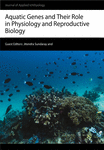Aquatic genes play a pivotal role in shaping the intricate tapestry of physiology and reproductive biology in aquatic animals. These specialized genetic codes are finely tuned to the challenges posed by aquatic environments, influencing crucial aspects of adaptation and survival. From osmoregulation to thermal tolerance, aquatic genes orchestrate mechanisms that enable organisms to navigate diverse aquatic habitats. In reproductive biology, these genes intricately govern reproductive strategies, from spawning behaviors to the development of specialized reproductive structures. Understanding the molecular underpinnings of aquatic genes offers valuable insights into the evolutionary adaptations that have allowed aquatic animals to thrive in dynamic and often extreme aquatic ecosystems. This exploration of genetic intricacies opens avenues for conservation strategies and aquaculture advancements, unlocking the mysteries of life beneath the water's surface.
Exploring the role of aquatic genes in physiology and reproductive biology presents several challenges. Firstly, the vast diversity of aquatic environments requires a nuanced understanding of how genes adapt to different conditions, posing a challenge in deciphering the complex interplay of genetic factors. Additionally, the intricate web of interactions between genes and environmental variables makes it challenging to isolate specific genetic contributions. The unraveling of the genetic basis of reproductive strategies in aquatic animals is further complicated by the diversity of reproductive modes and behaviors across species. The dynamic nature of aquatic ecosystems, subject to environmental changes and anthropogenic pressures, adds another layer of complexity, as genes must continually adapt. Furthermore, technological limitations in studying aquatic genomes, particularly in non-model species, hinder comprehensive genomic analyses. Overcoming these challenges is crucial to advance our understanding of aquatic genes and to use this knowledge for the conservation and sustainable management of aquatic ecosystems.
The study of aquatic genes and their impact on physiology and reproductive biology in aquatic animals aims to unravel the intricate mechanisms underlying adaptation and survival in diverse aquatic environments. Through comprehensive genomic analyses, the objective is to identify and characterize key genes involved in osmoregulation, thermal tolerance, and other physiological processes crucial to aquatic life. Understanding the genetic basis of reproductive strategies, including spawning behaviors and reproductive structures, is essential to elucidate the evolutionary adaptations that have shaped aquatic species. Furthermore, the research seeks to develop molecular tools and techniques that enable the assessment of genetic diversity and population dynamics in aquatic organisms. By elucidating the interplay between genes and environmental factors, the objective is to provide information on how aquatic species respond to environmental changes and anthropogenic pressures. This Special Issue welcomes original research and review articles.
Potential topics include but are not limited to the following:
- Genomic adaptations to osmoregulation: Investigating the genetic basis of osmoregulation in aquatic animals and how genes facilitate adaptation to varying salinity levels.
- Thermal tolerance genes: Exploring genes responsible for thermal regulation in aquatic organisms, shedding light on their ability to thrive in diverse temperature environments.
- Reproductive gene networks: Examining the genetic networks that govern reproductive processes, including the molecular mechanisms behind spawning behaviors and reproductive structures.
- Evolutionary signatures in aquatic genomes: Analyzing the evolutionary patterns and signatures present in the genomes of aquatic species, providing insights into their adaptive history.
- Genetic diversity and population dynamics: Studying the genetic diversity within populations and how it influences the resilience and adaptability of aquatic species to environmental changes.
- Comparative genomics across aquatic environments: Comparison of the genomes of species inhabiting different aquatic ecosystems to identify common genetic elements and adaptive strategies.
- Impact of anthropogenic stressors on aquatic genes: Investigating how human-induced stressors, such as pollution and habitat destruction, affect the expression of genes related to physiology and reproductive biology.
- Molecular tools for evaluating aquatic genetic diversity: Developing and evaluating molecular tools to assess genetic diversity in aquatic populations, contributing to effective conservation and management strategies.
- Aquatic genomics in aquaculture: Exploring the application of genomic techniques to improve selective breeding programs in aquaculture for improved physiological traits and reproductive success.
- Gene-environment interactions: Investigating the dynamic interaction between genes and environmental factors to understand how aquatic organisms respond to changing conditions and stressors.




